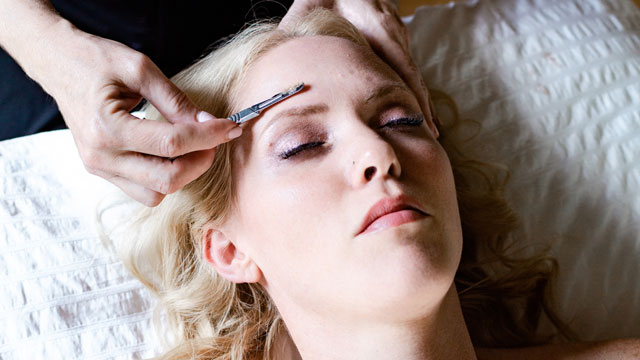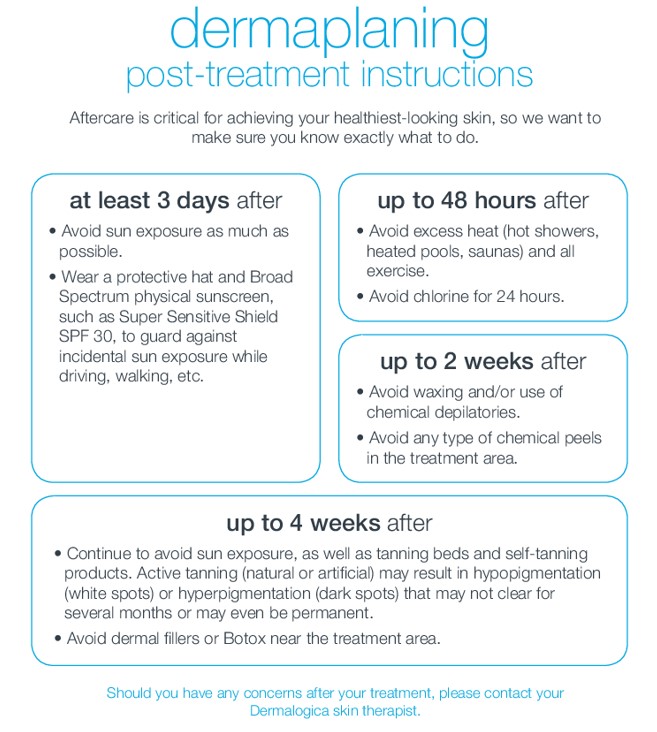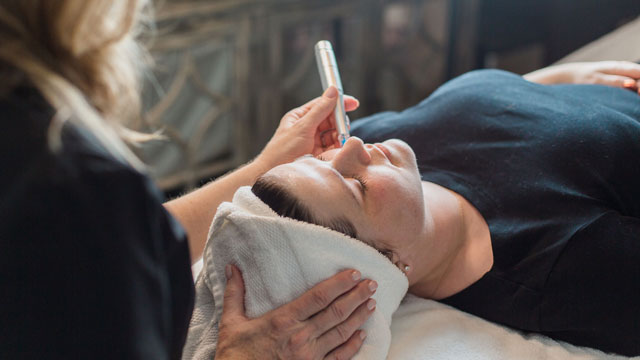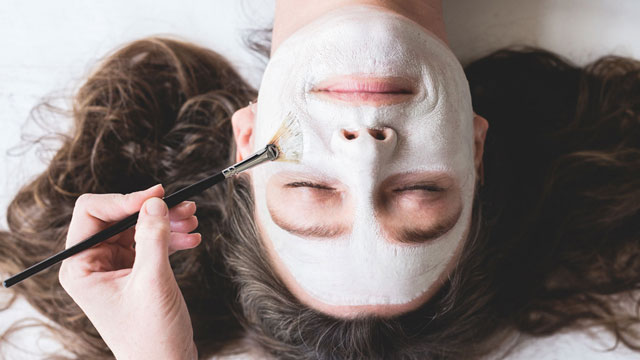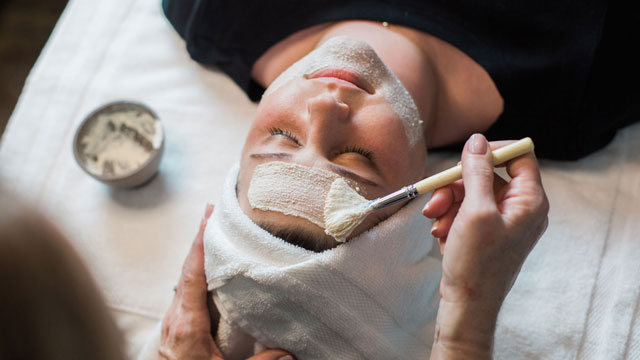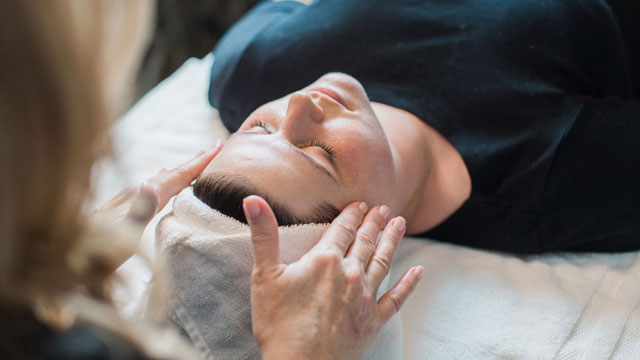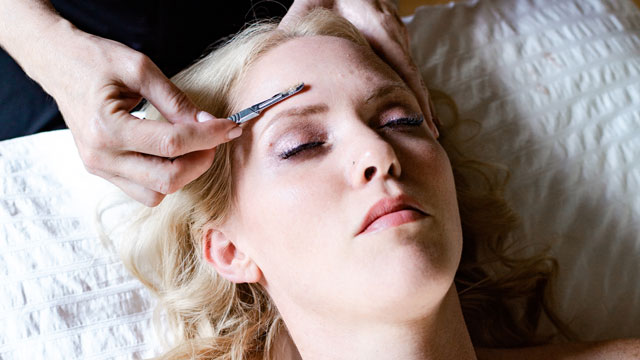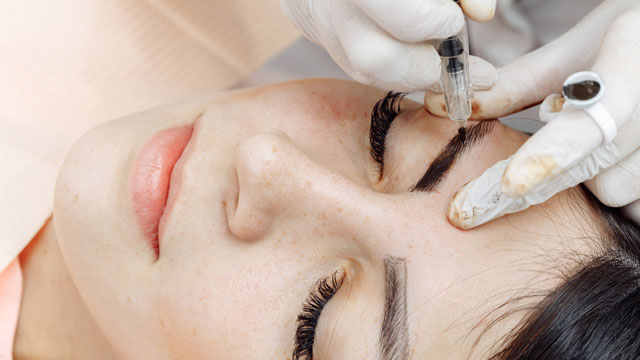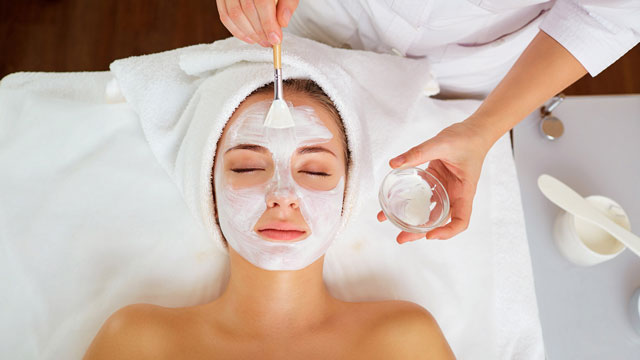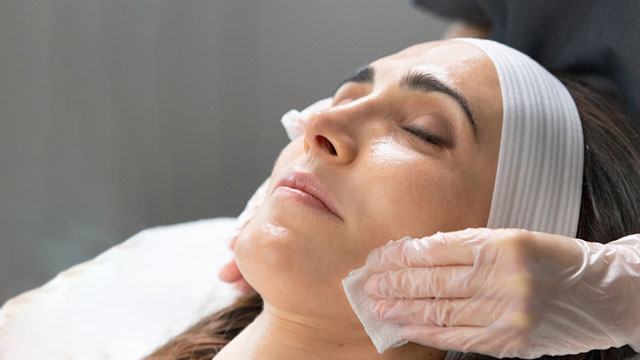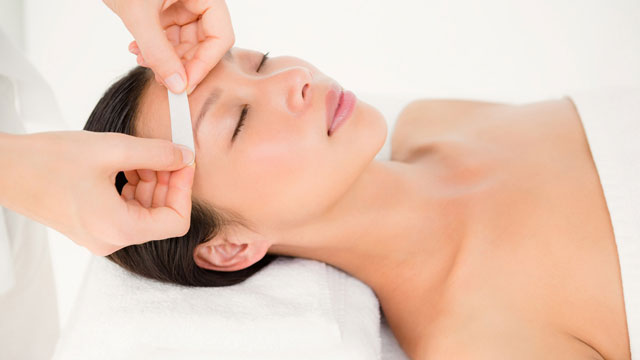Dermaplaning is a physical exfoliation method that is performed by a trained, licensed Esthetician who uses a scalpel and a soft touch to scrape the surface of the skin using light feathery strokes to gently shave the top layer of the skin, the stratum corneum, dead skin layer, and vellus hair, known as peach fuzz. This treatment results in ultra-smooth, fresh, and brighter skin. By removing that dead layer and hair from the face, the skin is evened out, and it helps with cell metabolism, which allows new skin to come to the surface.
- Painlessly exfoliates the stratum corneum to stimulate cellular turnover with little to no downtime.
- A great option for guests with sensitive skin and pregnant women who are looking for deep exfoliation.
- Can be performed prior to treatments like facials, microdermabrasion, and chemical peels for better product penetration.
- Can be performed frequently.
- Helps makeup go on smoother and more evenly.
- Can help significantly lighten post-inflammatory scars from past acne.
- Does not make the hair grow back thicker and darker.
What are the benefits of Dermaplaning?
You’ll immediately look more radiant with a more even skin tone and texture. All your peach fuzz will be gone, which is why first-timers say their skin has never felt so soft before. The exfoliation and hair removal can leave your skin brighter and smoother. The treatment may soften fine lines and wrinkles and ease hyperpigmentation, or uneven skin tone. It’s also used to treat deep acne scars. How well it works really depends on your skin type, tone, and medical history.
Risks and Side Effects
Most people have little to no irritation or reaction. Short-term side effects may include:
- Red and swollen skin from the scraping
- Soreness
- A burning or tingling sensation for about 48 hours after the procedure
It’s not common for your hair to grow back thicker or darker. But in rare cases, dark hair may grow near your chin or “sideburns.”
Dermaplaning isn’t recommended if you have inflammatory skin conditions such as:
If you’re taking isotretinoin, a prescription medication used to treat severe acne, you should wait 6 months after you stop taking it to try dermaplaning.
